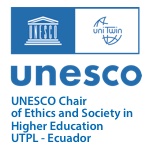Textualization, Polyalphabetization And Info-Literacy Of Written Discourse In The Digital And Informational Age
Abstract
This paper aims to describe and analyze some coordinates from the hermeneutic and axiological-contextual order that are correlated between oral culture, writing and electronics in the global knowledge society. From these perspectives, the intention is to approach the treatment and reflection of some topics that study the phenomenon of language in relation to technology, and that from the digital and informational world provoke and promote a series of cognitive behaviors from the which the literate person constructs mental models to communicate, and with which he exerts a marked behavioral influence to perceive reality and respond to it from situational and communicational circumstances close to his life experience.
Downloads
References
Díaz, Álvaro (2009). Aproximación al texto escrito. Medellín: Editorial Universidad de Antioquia.
Martos Eloy, y Campos Mar. coord (2013). Diccionario de nuevas formas de lectura y escritura. Barcelona: Editorial Santillana.
Dilts, Robert (2008). El poder de la palabra. Programación neurolingüística, traducción de David Sempau, Barcelona: Ed. Urano.
Martínez, Jaime (2009). Aportes del modelo psicolingüístico a la escritura. Bogotá: Ed. Magisterio.
Copyright (c) 2019 © Analysis

This work is licensed under a Creative Commons Attribution-NonCommercial-NoDerivatives 4.0 International License.








